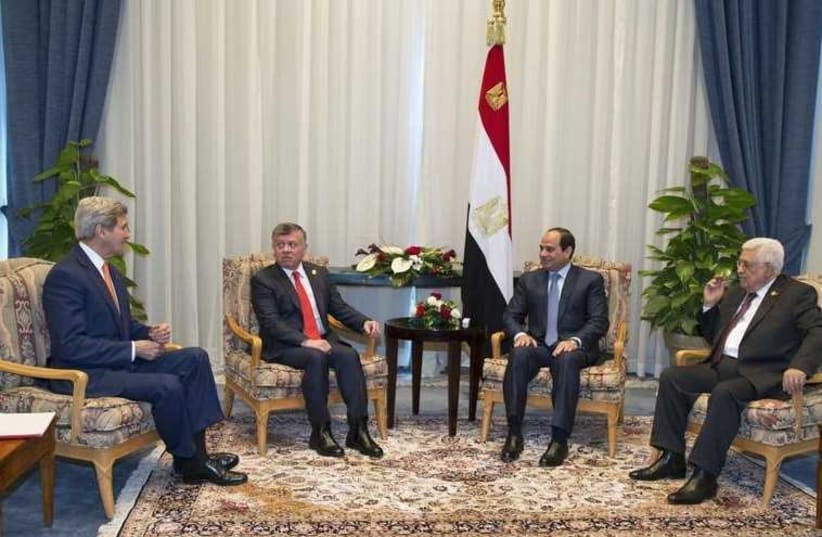See the latest opinion pieces on our page
The question that needs to be asked, therefore, is how can the international community advance the two-state concept short of an agreement, despite the expected lack of cooperation from an Israeli government.We propose that the international community should adopt a paradigm that allows all stakeholders – Israel, Palestinians, the US and the other players – to take independent steps that will advance a reality of two states. Independent movement is key because it can overcome the opposition of those who do not wish to cooperate, as it nullifies the excuses of blaming the other sides for lack of progress.The US administration needs to move first, by clearly spelling out the parameters of the end-game. These parameters were first drafted by president Clinton and then further refined in various forums, including the Bush-Quartet Road Map, the Arab League initiative, and, most recently, in US Secretary of State John Kerry’s document summary of US insights from the latest negotiation round. The parameters are acceptable to the vast majority of the international community, and also to the majority of Israelis and Palestinians.(These parameters are: borders that are based on the 1967 lines with equitable land swaps to allow Israel to keep the large settlement blocs; a demilitarized Palestinian state and adequate and tight security arrangements; rehabilitation of the Palestinian refugees within the Palestinian state and in third countries; an arrangement that allows the Jerusalem area to encompass two capitals, with freedom of worship and free access to the holy places.) Once the parameters are on the table, any independent step taken in the future can be clearly evaluated regarding whether they moves us closer to the reality of two states, and are thus considered constructive, or take us further away. These parameters should be further adopted by the UN Security Council.For example, once the parameters are on the table and adopted by the UN, it is obvious that recognition of a Palestinian state as a full UN member is constructive. Conversely, suing Israel in the International Criminal Court in The Hague is destructive. A long-term truce between Fatah and Hamas, allowing for the rehabilitation and reconstruction in Gaza while preventing arming, is a positive step; a resurrection of Palestinian violence is evidently in the wrong direction.Similarly, an Israeli cessation of settlement activity outside of the settlement blocs, as well as preparing for the relocation of the settlers who currently live there, are constructive steps, while expansion of settlements outside the large blocs is not.The parameters will enable a carrot- and-stick policy, to encourage the parties to make constructive steps that advance a reality of two states and deter them from making destructive steps.Our suggested paradigm shift does not rule out a simultaneous regional dialogue within the scope of the Arab Peace Initiative and bilateral negotiations with the Palestinians.Once the paradigm is changed from “negotiation-exclusive” to “independent,” all players – the parties and members of the international community – will not be able to blame any other for lack of progress, because each will be responsible for its own acts. The paradigm will pull the rug under the claim of those who blame the other party for lack of progress, and will make it much more difficult to maintain a dishonest position in which the rhetoric supposedly supports a two-state solution but the actions do not.The authors are the principals of the Israeli NGO Blue White Future.
Act independently
Throughout two decades of the Israeli-Palestinian “peace process,” direct negotiation has been perceived as the only paradigm that can lead to an agreement.
